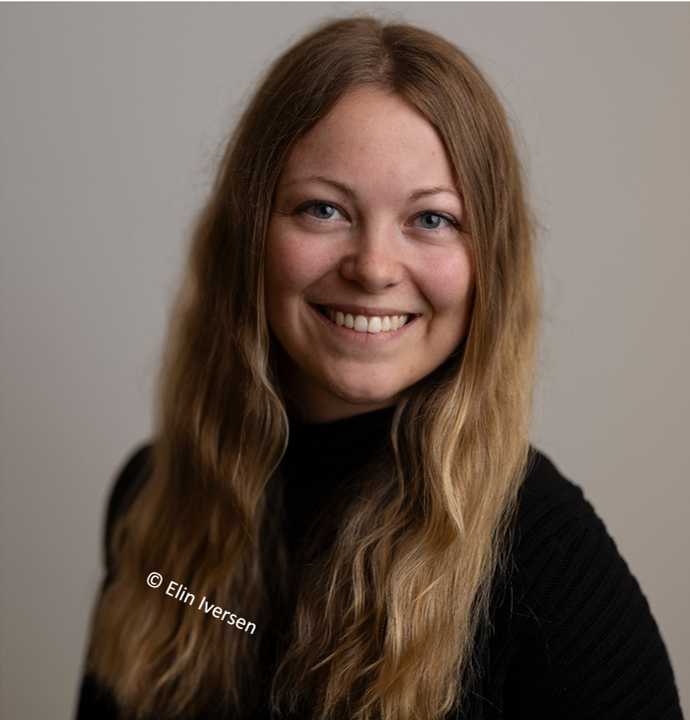Paula Friedericke Hartmann is a doctoral researcher at the IRTG “Baltic Peripeties” at the University of Greifswald. She obtained both her Bachelor’s and Master’s degree in German Literature and Culture from the Norwegian University of Science and Technology, Trondheim, Norway. She has been a teacher in German as a foreign language in high school and at the university. Her research interests are primarily Graphic Novels. Before she got into literature, she studied science of sport and was an active biathlete. Paula speaks Norwegian fluently.
Paula Friedericke Hartmann

University of Greifswald
IRTG Baltic Peripeties
Anklamer Str. 20
17489 Greifswald
Germany
Room: 0.11
+49 3834 420 3333
paula.hartmann[at]uni-greifswald.de
The Representation of Historical Crimes in the Graphic Novel. A Comparative Study of Perpetrator and Victim Narratives of the “Third Generation”
The National Socialist genocide of Jews before and during the Second World War occupies a special place in history. The Holocaust is a rupture of civilization that fundamentally changed history. While the culture of remembrance in Western Europe has been concerned with the Holocaust for decades, in the Baltic and Soviet regions the focus is primarily on the crimes of the Gulag.
Today we meet one crucial challenge: The contemporary witnesses belong to the last generation who can still report from their own memories. The window of opportunity for witness documentation is beginning to close. In addition to the remaining eyewitnesses, it is now the children and grandchildren of the victims or perpetrators of the historical event who tell about the crimes. According to Marianne Hirsch, these are the generations of postmemory: descendants of a generation that experienced the Second World War. It is the responsibility of these generations and today’s society to shed light on, record and deal with the crimes, because they must not be forgotten, weakened, or even doubted even if the contemporary witnesses is starting to disappear. This important work of remembering and processing is often carried out through literature. We currently live in a time in which multimodal texts have become an increasingly important part of the literary canon. Texts that compose visual and textual elements give us new opportunities to tell and reflect on different levels.
In my dissertation I will investigate graphic novels, written by the third generation in postmemory. The planned comparative project aims to answer the following questions: (1) How are the Holocaust and the Gulag staged through narrative voices today? (2) What possibilities does the genre graphic novel offer regarding historical authenticity? (3) How do the authors and narrators of the “third generation” represent the historical actors in the graphic novel genre and to what extent are they understood as victims or perpetrators?
- Participation in the CBEES Summer School The Return of History: Memory, War and the End of the “Post”, organised by the Centre for Baltic and East European Studies (CBEES) at Södertörn University, Sigtuna, August 12-17, 2024.
- “The Representation of Historical Crimes in the Graphic Novel. A Comparative Study of Perpetrator and Victim Narratives of the ‘Third Generation’,” international workshop Resonant Conflicts. Turning Points in the Baltic Sea Region, organised by the IRTG Baltic Peripeties. Narratives of Reformations, Revolutions and Catastrophes, Department for Language and Literature, NTNU Trondheim, May 22-24, 2024.
- “Generationsübergreifende Erzählungen. Kriegsfamilien in skandinavischen und deutschsprachigen Graphic Novels [Intergenerational narratives. War families in Scandinavian and German-language graphic novels],” Erzählen in Kriegszeiten. Skandinavisch-deutsche Perspektiven, literary symposium as part of the Nordischer Klang Festival, Alfried Krupp Institute for Advanced Study Greifswald, May 6, 2024.
- “Geschichte und Kultur in ‘grafischer Literatur’” [History and culture in ‘graphic literature’], Network Day for foreign language teachers in Trøndelag, NTNU Trondheim, November 29, 2023.
University studies and degrees
- Since April 2024
- Doctoral Researcher at the International Research Training Group “Baltic Peripeties. Narratives of Reformations, Revolutions and Catastrophes” at the University of Greifswald.
- 08/2021 – 05/2023
- MA in German, NTNU Trondheim. Thesis: “Der Holocaust in der Graphic Novel: Zur Darstellung der Shoah-Erinnerung in dem multimodalen Projekt Aber ich lebe: Vier Kinder überleben den Holocaust (2022)” [The Holocaust in the Graphic Novel: On the representation of Shoah memory in the multimodal project But I live: Three Stories of Child Survivors of the Holocaust (2022)].
- 08/2018 – 06/2020
- BA in German, NTNU Trondheim. Thesis: “Geschichtsvermittlung im Kinderbuch: Eine Studie über Franziska Gehms und Horst Kleins Erzählbilderbuch Hübendrüben (2018)” [Teaching history in children’s books: A study of Franziska Gehm and Horst Klein’s narrative picture book Hübendrüben (2018)].
- 98/2016 – 06/2018
- BA in Sports Science, University Nord, Meråker. Thesis: “Hvordan påvirker menstruasjonssyklusen prestasjon i konkurranser og kvalitet på trening hos kvinnelige langrennsløpere og skiskyttere?” [How does the menstrual cycle affect performance in competitions and quality of training in female cross-country skiers and biathletes?].
Professional background
- 02/2024 – 06/2024
- University teacher in German with tasks in subject management and recruitment work, NTNU Trondheim.
- 08/2021 – 06/2023
- Subject teacher at Trøndelag fylkeskommune & KVT – Kristen videregående skole Trøndelag, Tiller.
- 08/2020 – 02/2023
- Research assistant with tasks in subject management and seminar teaching in German language, literature and culture, NTNU Trondheim.
- 04/2019 – 02/2022
- Employee, Sverresborg folkemuseum (MIST), Trondheim.
- 01/2020 – 03/2020
- Subject teacher for German (“minireferendariet”), Waldschule Flensburg, Germany.
Teaching
- Spring 2024
- Course in German, “Language Proficiency 2”, NTNU Trondheim.
- Autumn 2023
- Courses in German, “Language Proficiency 1”, “German Literature and Culture 3”, “Language, Societal Challenges, Cultural Understanding”, NTNU Trondheim.
- Spring 2023
- Courses in German, “Language Proficiency 2”, “Literature and Culture 2”, NTNU Trondheim.
- Autumn 2022
- Courses in German, “Literature and Culture 1”, “Language Proficiency 1”, NTNU Trondheim.
- Autumn 2021 – Spring 2022
- Courses in German, “Literature and Culture 2”, “Germany and Europe”, NTNU Trondheim.
- Autumn 2021
- (assistant teaching) course in language education “Foreign Language and Society”, NTNU Trondheim.